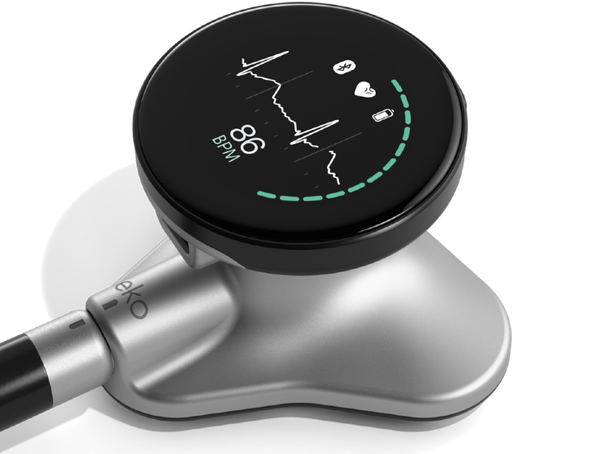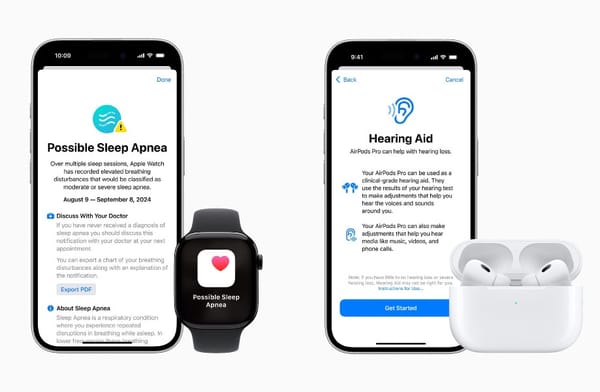Artificial intelligence (AI) is rapidly transforming the landscape of digital health, ushering in a new era of personalized and efficient healthcare. As technology continues to advance, AI is playing an increasingly crucial role in improving patient outcomes, streamlining medical processes, and empowering healthcare professionals with powerful tools for diagnosis and treatment.
Key takeaways:
• AI enhances diagnosis accuracy and treatment recommendations
• Wearable technology and remote monitoring improve patient care
• AI-powered tools facilitate chronic disease management
• Ethical considerations and data privacy remain important challenges
AI-Driven Diagnosis and Treatment
One of the most significant impacts of AI in digital health is its ability to assist in diagnosis and treatment recommendations. Machine learning algorithms can analyze vast amounts of medical data, including patient records, imaging scans, and research papers, to identify patterns and make predictions with remarkable accuracy[1]. This capability allows healthcare providers to make more informed decisions and catch potential issues earlier.
For example, AI systems have shown promise in detecting malignant tumors from medical images, often outperforming human radiologists in terms of speed and accuracy[2]. This technology not only improves diagnostic capabilities but also helps prioritize cases, ensuring that patients with urgent needs receive attention more quickly.
Wearable Technology and Remote Monitoring
The integration of AI with wearable devices and remote monitoring systems has opened up new possibilities for continuous health tracking and preventive care. These technologies collect real-time data on various health metrics, such as heart rate, blood pressure, and activity levels, which can be analyzed by AI algorithms to detect anomalies or potential health risks[1].
This approach allows for more proactive healthcare management, as patients and healthcare providers can be alerted to potential issues before they become serious. Additionally, remote monitoring reduces the need for frequent in-person visits, making healthcare more accessible and convenient for patients, especially those with mobility issues or living in remote areas.
Chronic Disease Management
AI plays a crucial role in facilitating the care of chronic diseases, which often require ongoing monitoring and management. By analyzing patient data from various sources, including wearable devices, electronic health records, and patient-reported outcomes, AI systems can provide personalized recommendations for disease management[1].
For conditions such as diabetes, hypertension, and heart failure, AI-powered tools can help patients track their symptoms, medication adherence, and lifestyle factors. These systems can also alert healthcare providers when intervention may be necessary, allowing for timely adjustments to treatment plans and potentially preventing complications.
Ethical Considerations and Challenges
While the potential benefits of AI in digital health are significant, it's important to address the ethical considerations and challenges associated with its implementation. Data privacy and security are paramount concerns, as AI systems require access to large amounts of sensitive health information[2].
Additionally, there are concerns about the potential for bias in AI algorithms, which could lead to disparities in healthcare delivery if not properly addressed. Ensuring that AI systems are developed and trained using diverse and representative datasets is crucial to mitigate these risks.
As AI continues to evolve, it's essential for healthcare providers, policymakers, and technology developers to work together to establish guidelines and best practices for the responsible use of AI in digital health.
In conclusion, AI is poised to revolutionize digital health by enhancing diagnostic capabilities, improving patient monitoring, and facilitating personalized care. As we move forward, it's crucial to balance the immense potential of AI with careful consideration of ethical implications and data privacy concerns. By doing so, we can harness the power of AI to create a more efficient, effective, and equitable healthcare system for all.
To learn more about the latest developments in AI and digital health, subscribe to our newsletter for regular updates on cutting-edge research and innovations in longevity science.
References:
- Chang, A. (2020). The Role of Artificial Intelligence in Digital Health. In: Wulfovich, S., Meyers, A. (eds) Digital Health Entrepreneurship. Health Informatics. Springer, Cham. https://doi.org/10.1007/978-3-030-12719-0_7
- Chang, A. (2023). The Role of Artificial Intelligence in Digital Health. In: Meyers, A. (eds) Digital Health Entrepreneurship. Health Informatics. Springer, Cham. https://doi.org/10.1007/978-3-031-33902-8_6














Member discussion